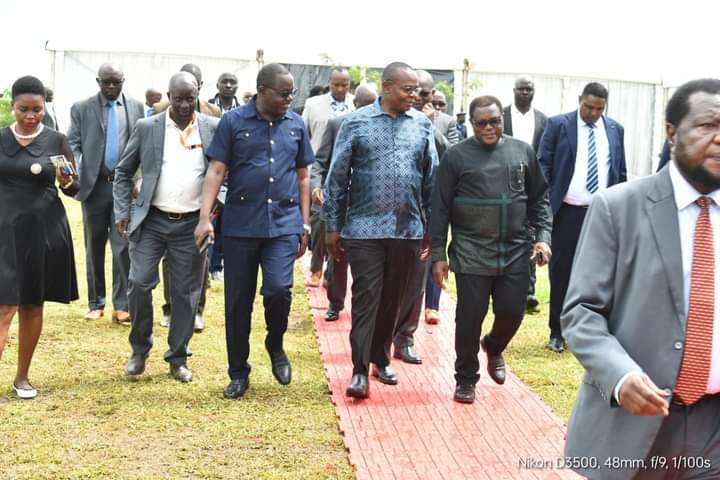Photos| Samson Wire, Directorate of Public Communication, County Government of Siaya
This year’s summit is the 12th for LREB and the theme is “Food Security in Climate Change”.
Following the global climate change food security poses an enormous challenge and the summit could not have come at a better time.
Leaders deliberated on how the 14 counties represented can pull together resources to transform Lake Victoria and have it supply water in all the Counties within the Bloc and ultimately transform the region into a bread-basket with the goal of feeding the entire country. Most parts of Kenya usually depend on the highly unpredictable rain-fed agriculture.
The summit is committed into building synergies and having the LREB counties intervene in areas of climate change and food security.
Those present in the Siaya entourage included County Executive Committee Member for Agriculture Sylvester K’Okoth, Education CECM Dr. Edgar Otumba, Water and Sanitation CECM, Prof. Jacklyne Oduol and Lands CECM Eng. Mc’Orege.
It is estimated that the number of people suffering acute food insecurity globally increased from 135 million in 2019 to 345 million in 82 countries by June 2022, as the war in Ukraine, supply chain disruptions, and the continued economic fallout of the COVID-19 pandemic pushed food prices to all-time highs.
Global food insecurity had already been rising, due in large part to climate phenomena. Global warming is influencing weather patterns, causing heat waves, heavy rainfall, and droughts. Rising food commodity prices in 2021 were a major factor in pushing approximately 30 million additional people in low-income countries toward food insecurity.
Changing weather patterns have rendered rain-fed agriculture an unpredictable means of food production.
At the same time, the way that food is often produced today is a big part of the problem. It’s recently been estimated that the global food system is responsible for about a third of greenhouse gas emissions—second only to the energy sector; it is the number one source of methane and biodiversity loss.
Read more: https://siaya.go.ke

